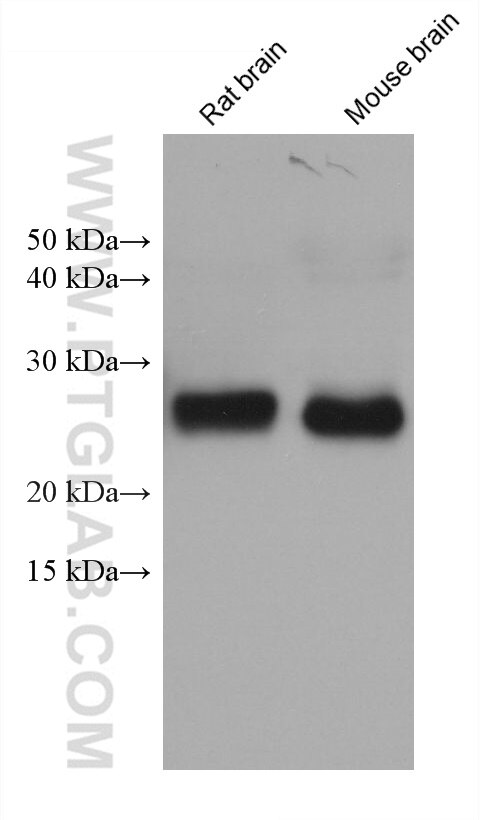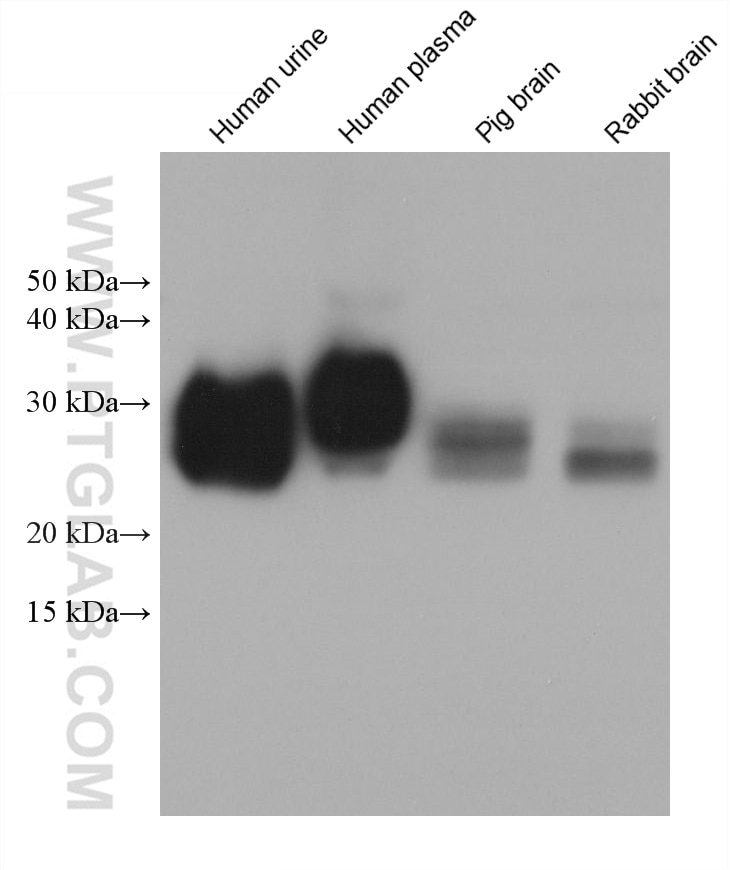PTGDS Monoklonaler Antikörper
PTGDS Monoklonal Antikörper für WB, Indirect ELISA
Wirt / Isotyp
Maus / IgG2a
Getestete Reaktivität
Hausschwein, human, Kaninchen, Maus, Ratte
Anwendung
WB, Indirect ELISA
Konjugation
Unkonjugiert
CloneNo.
2D6E7
Kat-Nr. : 68783-3-PBS
Synonyme
Geprüfte Anwendungen
Produktinformation
68783-3-PBS bindet in WB, Indirect ELISA PTGDS und zeigt Reaktivität mit Hausschwein, human, Kaninchen, Maus, Ratten
| Getestete Reaktivität | Hausschwein, human, Kaninchen, Maus, Ratte |
| Wirt / Isotyp | Maus / IgG2a |
| Klonalität | Monoklonal |
| Typ | Antikörper |
| Immunogen | PTGDS fusion protein Ag34483 |
| Vollständiger Name | prostaglandin D2 synthase 21kDa (brain) |
| Berechnetes Molekulargewicht | 21 kDa |
| Beobachtetes Molekulargewicht | 28 kDa |
| GenBank-Zugangsnummer | BC005939 |
| Gene symbol | PTGDS |
| Gene ID (NCBI) | 5730 |
| Konjugation | Unkonjugiert |
| Form | Liquid |
| Reinigungsmethode | Protein-A-Reinigung |
| Lagerungspuffer | PBS only |
| Lagerungsbedingungen | Store at -80°C. 20ul Größen enthalten 0,1% BSA. |
Hintergrundinformationen
Glycoprotein prostaglandin D2 synthase (PTGDS), also known as L-PGDS, PGDS, and LPGDS, is a member of the lipocalin superfamily and plays dual roles in prostaglandins metabolism and lipid transport (PMID: 34743203). PTGD2 functions as a neuromodulator as well as a trophic factor in the central nervous system. PTGD2 is also involved in smooth muscle contraction/relaxation and is a potent inhibitor of platelet aggregation. PTGDS is abundantly expressed in the brain and heart and has also been found in testis, prostate, kidney, spleen and leukocytes. It can be found as a collection of monomeric glycoforms with molecular weights in the 27-34 kDa range (PMID: 32430846).





